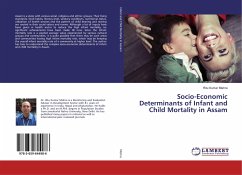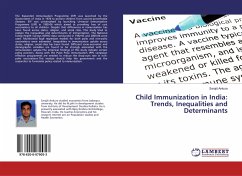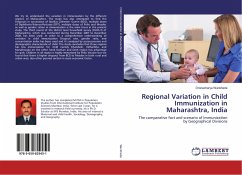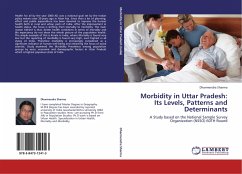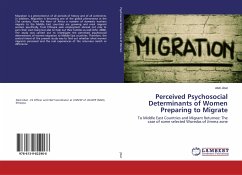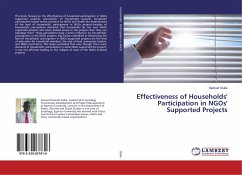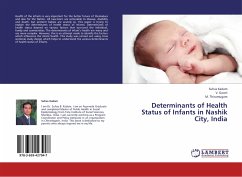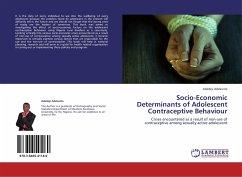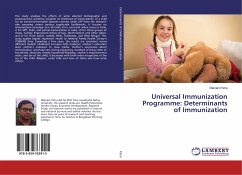
Universal Immunization Programme: Determinants of Immunization
Versandkostenfrei!
Versandfertig in 6-10 Tagen
36,99 €
inkl. MwSt.

PAYBACK Punkte
18 °P sammeln!
The study analyses the effects of some selected demographic and socioeconomic predictor variables on likelihood of immunization of a child for six vaccine-preventable diseases covered under UIP from the demand-side assuming ceteris paribus supply-side bottlenecks. It focuses on immunization coverage a) in all India, b) in rural and urban areas in India, c) for DPT, Polio, and partial immunization in India, d) for three groups of states, namely, Empowered Action Group, North-Eastern and other states, and e) for three states, namely, Bihar, Tamilnadu, and West Bengal. The study applies logistic ...
The study analyses the effects of some selected demographic and socioeconomic predictor variables on likelihood of immunization of a child for six vaccine-preventable diseases covered under UIP from the demand-side assuming ceteris paribus supply-side bottlenecks. It focuses on immunization coverage a) in all India, b) in rural and urban areas in India, c) for DPT, Polio, and partial immunization in India, d) for three groups of states, namely, Empowered Action Group, North-Eastern and other states, and e) for three states, namely, Bihar, Tamilnadu, and West Bengal. The study applies logistic regression model to National Family Health Survey-2 (1998-99) data. Excepting a few cases, the results are consistent across different models. Likelihood increases with residence, mother's education level, mother's exposure to mass media, mother's awareness about immunization, antenatal care during pregnancy, standard of living index of household, electricity, female household-headship, mother's empowerment index, and sex of the child; it decreases with birth-order irrespective of the sex of the child. Religion, caste/ tribe and zone of states also have some effects.



